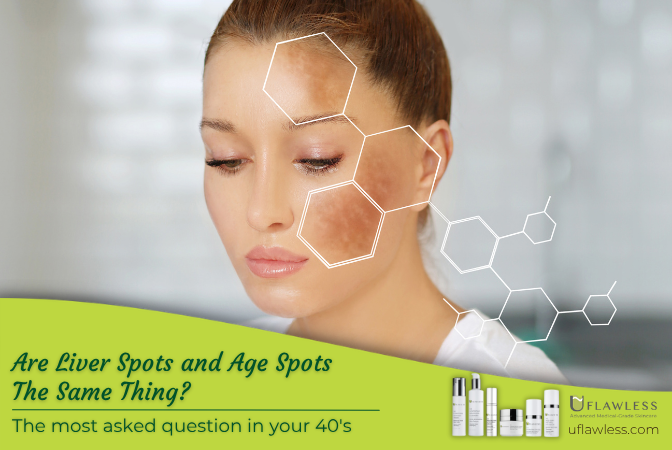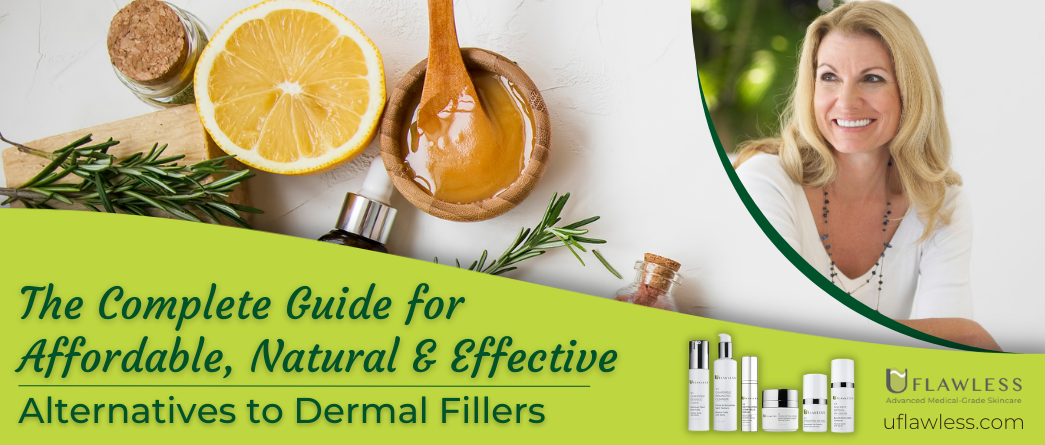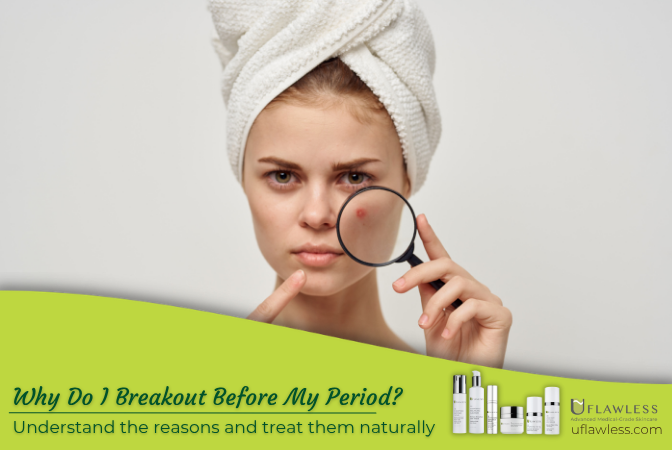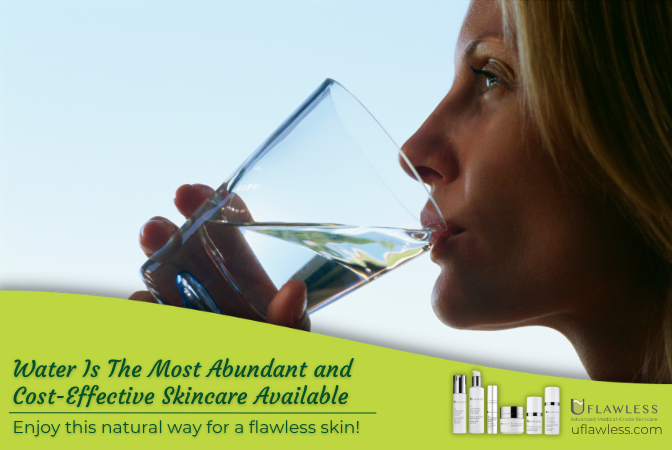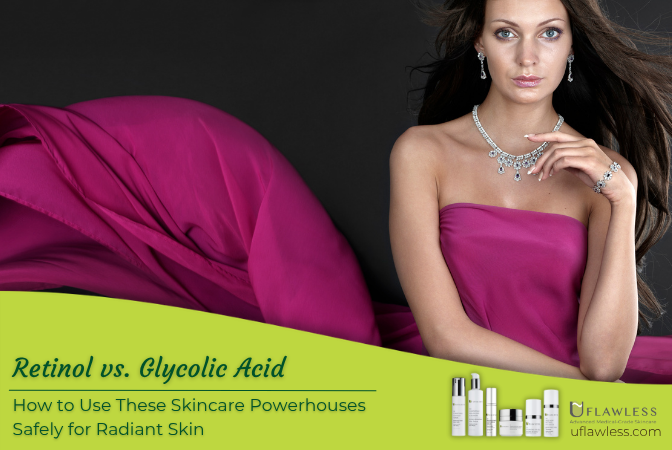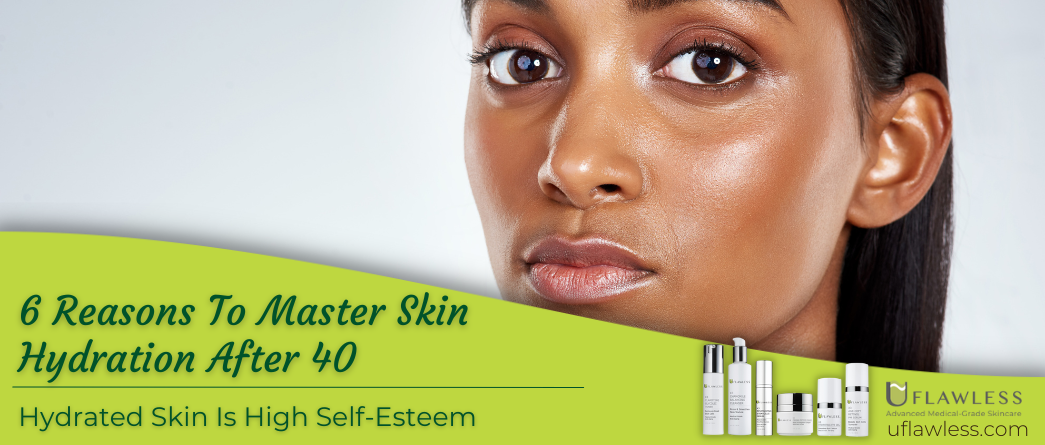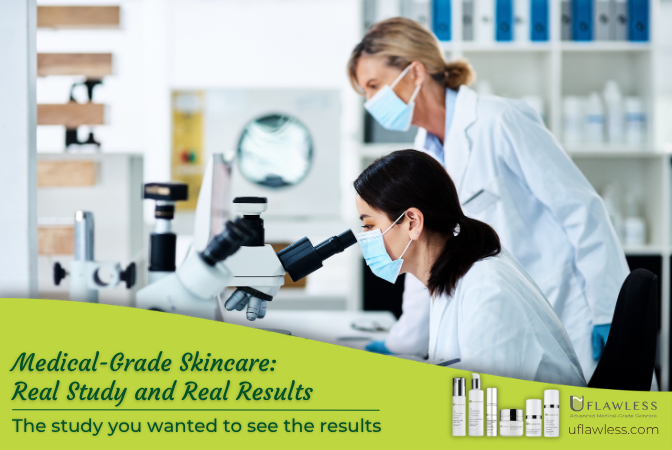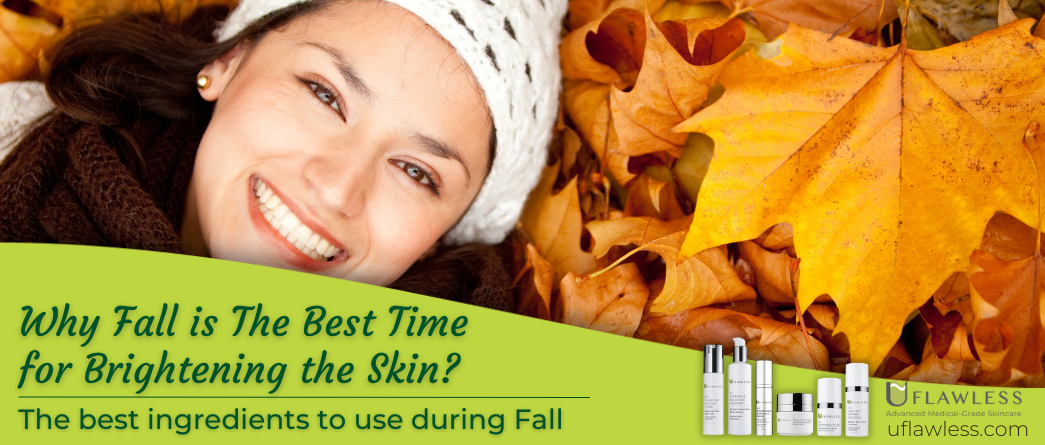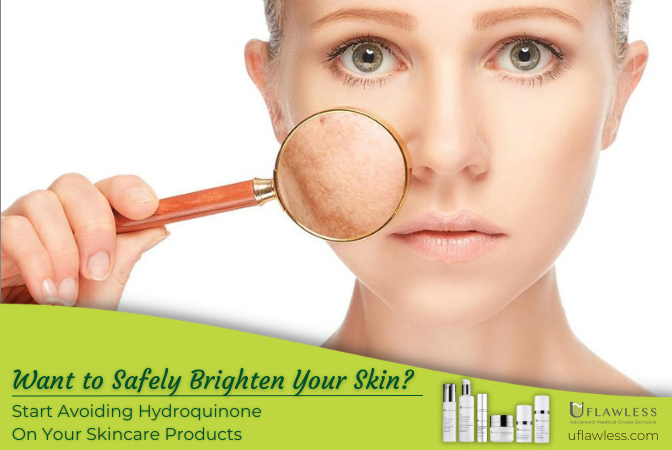
Want to Safely Brighten Your Skin? Avoid Hydroquinone On Your Skincare Products
The desire to safely brighten your skin has gained popularity, so it's essential to approach the topic with an evidence-based lens. One such topic is to avoid Hydroquinone in skincare products.
Hydroquinone: A Historical Perspective
Hydroquinone has been a staple in skin-brightening treatments for over half a century.
Its efficacy is well-documented, which led to its rise in popularity by the end of the 20th century.
However, concerns about its safety emerged when some studies linked its use to potential risks such as skin cancer and ochronosis, a bluish-black pigmentation.
The U.S. Food and Drug Administration (FDA) has cleared the use of Hydroquinone in products up to a concentration of 2%.
However, it's noteworthy that many countries, such as Japan, Australia, and some in Europe, have banned its use due to concerns about oxidative damage to protective membrane lipids with prolonged application.
Potential Side Effects of Hydroquinone
While Hydroquinone's effectiveness is not in dispute, its potential side effects are a concern. Some users have reported:
- Initial redness or dryness.
- Ochronosis, characterized by bluish-black pigmentation with long-term use.
- Recurrence of dark spots, melasma, and hyperpigmentation after discontinuing its use.
Hydroquinone is a well-researched compound, and its side effects have been extensively studied.
Here's a deeper dive into the side effects of Hydroquinone, backed by scientific literature:
1. Ochronosis:
This is one of the most discussed side effects of Hydroquinone. Ochronosis is a condition where the skin becomes thickened and dark, often with a blue or grayish hue.
It's primarily seen with the prolonged use of Hydroquinone, especially in higher concentrations. This effect was notably documented in a study published in the Journal of the American Academy of Dermatology.
This is the reason it is very important to avoid sun exposure while using hydroquinone. It is also recommended to start any brightening treatment during fall and winter seasons.
Main Consequences of Hydroquinone Use On the Skin:
1. Allergic Reactions:
Some users can develop allergic contact dermatitis from Hydroquinone. Symptoms might include redness, itching, stinging, and swelling.
These allergic reactions were highlighted in studies such as those found in the Journal of Medical Case Reports.
2. Photosensitivity:
Hydroquinone can make the skin more sensitive to sunlight, leading to quicker sunburns or hyperpigmentation.
This effect emphasizes the need for sun protection while using products containing Hydroquinone.
This photosensitizing effect has been discussed in multiple dermatological publications.
3. Nail Discoloration:
In some cases, if Hydroquinone comes into contact with the nails, it can lead to discoloration, usually a blue or brownish tint.
This effect is temporary and fades with time but can be a cosmetic concern for some users.
4. Exogenous Ochronosis:
This is a variant of ochronosis and occurs when Hydroquinone accumulates in the skin over time, leading to papules and pigmented colloid milium.
The risk is especially high in high-concentration preparations and with prolonged use.
A study in the South African Medical Journal documented cases of exogenous ochronosis linked to Hydroquinone.
5. Cytotoxicity:
Some studies have shown that Hydroquinone can be cytotoxic to melanocytes, the cells responsible for producing melanin in our skin.
This cytotoxicity can lead to unpredictable results in skin-lightening treatments.
A study in The British Journal of Dermatology explored this effect in-depth.
6. Potential Carcinogenic Effects:
There have been concerns about the potential carcinogenic effects of Hydroquinone, especially when used in high concentrations and for extended periods.
However, the evidence is still inconclusive. Animal studies, like those referenced by the U.S. Environmental Protection Agency, have shown some correlation between Hydroquinone exposure and tumor development, but the direct applicability of these findings to humans remains under investigation.
It's essential to note that many of these side effects are associated with prolonged use of Hydroquinone, especially when used without proper medical supervision.
The compound's concentration and the presence of other ingredients in the formulation can also influence its safety profile.
As with any skincare product, it's crucial to consult with a dermatologist or skincare professional before starting or continuing treatment with Hydroquinone.
Vitamin-C as a Much Safer Alternative To Hydroquinone
- Overview: Vitamin C, also known as ascorbic acid, is a potent antioxidant that plays a role in skin collagen synthesis and can help mitigate the damaging effects of UV exposure.
- Benefits: It aids in the lightening of hyperpigmentation, protects the skin from free radical damage, and supports the skin's natural regeneration process.
- Sources: Common sources include citrus fruits (oranges, lemons), strawberries, bell peppers, and broccoli.
- Usage: Often found in serums and moisturizers. Some individuals might experience tingling or slight irritation due to the acidity of L-Ascorbic Acid in high concentrations.
Willow Bark Extract as A Natural Alternative to Hydroquinone:
- Overview: Willow Bark Extract contains salicin, a natural precursor to salicylic acid.
- Benefits: Acts as a natural exfoliant, helping to shed dead skin cells and clear pores, which can result in a brighter complexion.
- Sources: Extracted from the bark of willow trees.
- Usage: Commonly used in cleansers, toners, and acne treatments.
Lactic Acid is a Safer Alternative to Hydroquinone To Brighten The Skin:
- Overview: An alpha hydroxy acid (AHA) derived from fermented milk.
- Benefits: Exfoliates the skin, promotes cell turnover, and can improve signs of aging, reduce fine lines, and brighten complexion.
- Sources: Naturally found in milk, but the form used in skincare is often produced synthetically.
- Usage: Found in many exfoliating products, from cleansers to peels.
Another Natural Ingredient to Brighten The Skin Without Hydroquinone is Licorice
- Overview: Licorice root extract contains active compounds that have skin-soothing properties.
- Benefits: Known for its brightening effects, it can diminish the appearance of hyperpigmentation and redness.
- Sources: Extracted from the roots of the Glycyrrhiza glabra plant.
- Usage: Often found in serums, toners, and creams for sensitive or reddened skin.
Kojic Acid Is A Great Alternative To Avoid Hydroquinone To Safely Brighten The Skin
- Overview: A by-product of the fermentation process of certain fungi.
- Benefits: Acts as a skin-brightening agent and can reduce the appearance of dark spots.
- Sources: Derived from fungi and is a by-product of rice wine (sake) production.
- Usage: Found in serums, creams, and some soaps.
This Natural Ingredient Arbutin is a Natural Safer Ingredient to Avoid Hydroquinone and Brighten The Skin
- Overview: A molecule derived from the bearberry plant that inhibits tyrosinase, an enzyme responsible for melanin production.
- Benefits: Lightens the skin by reducing melanin production.
- Sources: Primarily derived from the bearberry plant but also found in blueberries and cranberries.
- Usage: Common in skin-lightening and brightening products.
Papaya/Papain is an Awesome Natural Alternative to Safely Brighten The Skin Avoiding Hydroquinone.
- Overview: Papaya contains an enzyme called papain, which has exfoliating properties.
- Benefits: Breaks down proteins on the skin surface, aiding in the removal of dead skin cells, revealing a brighter complexion.
- Sources: Extracted from the papaya fruit.
- Usage: Often found in exfoliating masks, cleansers, and peels.
Niacinamide Is A Safer Alternative To Avoid Hydroquinone And Safely Brighten The Skin:
- Overview: Also known as Vitamin B3, niacinamide is a water-soluble vitamin that works with the skin's natural substances.
- Benefits: Reduces the appearance of skin blemishes, and large pores, and improves uneven skin tone. It also has skin-barrier strengthening properties.
- Sources: Can be found in many grains and vegetables.
- Usage: Commonly found in serums, moisturizers, and toners.
Each of these natural alternatives has its unique properties and mechanisms of action.
When considering them as options, it's vital to consult with a skincare expert to determine the most suitable choice for individual skin needs and concerns.
The Safest Skincare Routine To Safely Brighten The Skin Avoiding Hydroquinone
Illuminate Your Skin with the X9 Advanced Brightening Routine
Seeking a radiant complexion? Dive into the X9 Advanced Brightening Routine by UFlawless, a testament to medical-grade skincare excellence.
Here's a glimpse of our rigorous clinical trials:
- Participants: 42 individuals, aged between 34 to 62.
- Procedure: Each underwent a 12-week evaluation by a board-certified dermatologist.
- Documentation: Using state-of-the-art digital photography, we captured changes from the baseline at 2, 4, 6, and 12-week intervals. These photographs, shot with both visible and cross-polarized light, provided an in-depth view of each participant's progress.
Results Speak Volumes:
- A remarkable 100% of participants resonated with and adhered to the X9 Advanced Brightening Routine.
- By week 4, all showcased enhanced skin luminosity, lightening, and smoother skin texture.
- 93% witnessed a reduction in fine lines and wrinkles by week 6.
- 87% reported a visible decrease in dark spots by the fourth week.

UFlawless 3-Step Hydroquinone-Free Routine for Brightening Your Skin:
- X9 Advanced Exfoliating Cleanser: Kickstart your brightening journey. Infused with premium natural ingredients, this cleanser sets the foundation.
- X9 Brightening Treatment Serum: Packed with potent medical-grade actives like Vitamin E and Vitamin-F, this serum ensures your skin remains hydrated, naturally glowing, and shielded from new dark spots.
- X9 Ultimate Brightening Moisturizer: Fortified with a robust 20% concentration of Vitamin C from citrus essential oils, this moisturizer targets lingering age spots. Though the high Ascorbic Acid content is generally well-tolerated, some might experience slight tingling or redness. If so, consider applying once daily for the initial two weeks, and then proceed with twice daily applications.
This 3-Step Routine delivers natural ingredients, Vitamin C, and multiple vitamins to brighten the skin without using Hydroquinone with 100% satisfaction guaranteed!
UFlawless Commitment to Skin Health
Our Promise: We're unwavering in our commitment to skin health.
That's why our products are Paraben-Free, Sulfate-Free, Cruelty-Free, and proudly Made in the USA.
Furthermore, our packaging features airless pumps, ensuring the product you receive remains uncompromised from start to finish.
UFlawless Dedication: Radiant, brighter skin for all! Join us in this journey to unveil your most luminous self.
Risk-Free: Use the entire bottles within 30 days and if you're not satisfied with the results, your money back is 100% guaranteed!
Scientific References for Safely Brightening the Skin Without Hydroquinone
• Hydroquinone and its analogues in dermatology - a potential health risk






